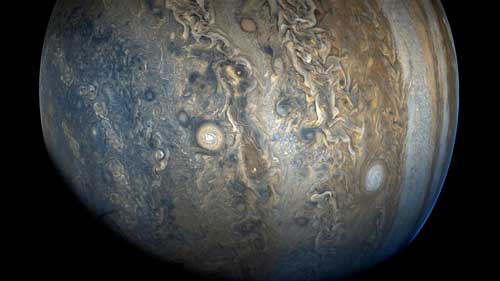 Researchers show how Jupiter was formed. Data collected from meteorites had indicated that the growth of the giant planet had been delayed for two million years. Now the researchers have found an explanation: Collisions with kilometer-sized blocks generated high energy, which meant that in this phase hardly any accretion of gas could take place and the planet could only grow slowly.
Researchers show how Jupiter was formed. Data collected from meteorites had indicated that the growth of the giant planet had been delayed for two million years. Now the researchers have found an explanation: Collisions with kilometer-sized blocks generated high energy, which meant that in this phase hardly any accretion of gas could take place and the planet could only grow slowly.
Aug 27th, 2018
Read more
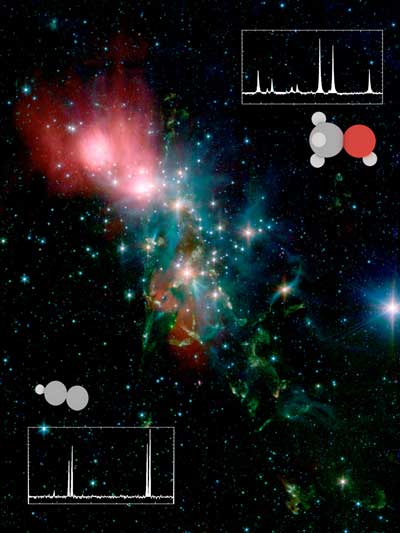 A survey of a molecular cloud has found that the organic chemical makeup of protostars varies considerably.
A survey of a molecular cloud has found that the organic chemical makeup of protostars varies considerably.
Aug 24th, 2018
Read more
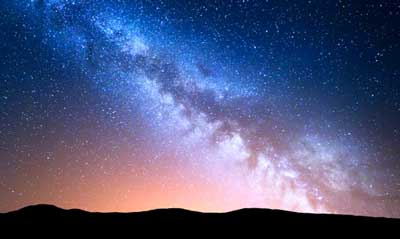 The Milky Way galaxy has died once before and we are now in what is considered its second life.
The Milky Way galaxy has died once before and we are now in what is considered its second life.
Aug 22nd, 2018
Read more
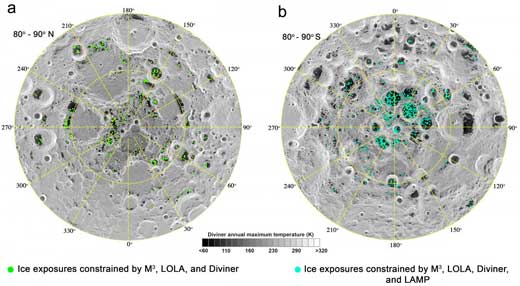 Scientists found the first direct evidence for the surface exposed water ice in permanently shaded regions of the Moon.
Scientists found the first direct evidence for the surface exposed water ice in permanently shaded regions of the Moon.
Aug 21st, 2018
Read more
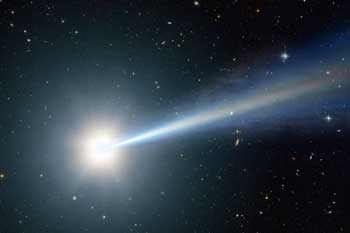 Results are among the strongest evidence yet for 'spooky action at a distance'.
Results are among the strongest evidence yet for 'spooky action at a distance'.
Aug 21st, 2018
Read more
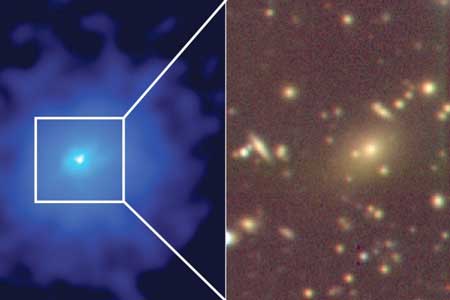 Bright light from black hole in a feeding frenzy had been obscuring surrounding galaxies.
Bright light from black hole in a feeding frenzy had been obscuring surrounding galaxies.
Aug 16th, 2018
Read more
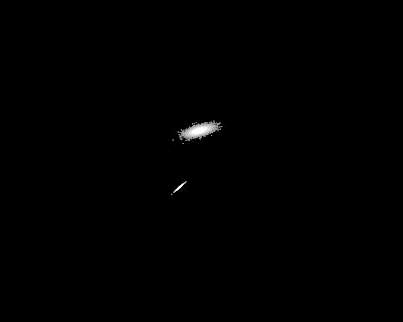 Study highlights role of dwarf-galaxy mergers in refueling other galaxies with gas.
Study highlights role of dwarf-galaxy mergers in refueling other galaxies with gas.
Aug 10th, 2018
Read more
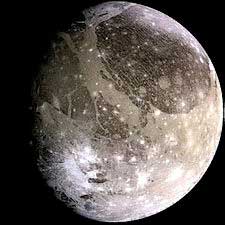 Listening to electro-magnetic waves around the Earth, converted to sound, is almost like listening to singing and chirping birds at dawn with a crackling camp fire nearby. This is why such waves are called chorus waves. They cause polar lights but also high-energy 'killer' electrons that can damage spacecraft. In a recent study, the authors describe extraordinary chorus waves around other planets in our solar system.
Listening to electro-magnetic waves around the Earth, converted to sound, is almost like listening to singing and chirping birds at dawn with a crackling camp fire nearby. This is why such waves are called chorus waves. They cause polar lights but also high-energy 'killer' electrons that can damage spacecraft. In a recent study, the authors describe extraordinary chorus waves around other planets in our solar system.
Aug 7th, 2018
Read more
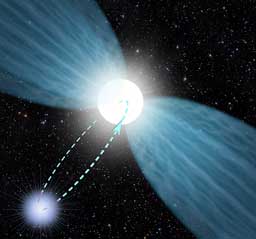 Brawl among three rowdy stellar siblings may have triggered eruption.
Brawl among three rowdy stellar siblings may have triggered eruption.
Aug 2nd, 2018
Read more
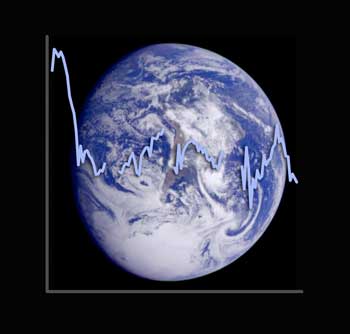 Earthbound detectives rely on fingerprints to solve their cases; now astronomers can do the same, using 'light-fingerprints' instead of skin grooves to uncover the mysteries of exoplanets.
Earthbound detectives rely on fingerprints to solve their cases; now astronomers can do the same, using 'light-fingerprints' instead of skin grooves to uncover the mysteries of exoplanets.
Jul 31st, 2018
Read more
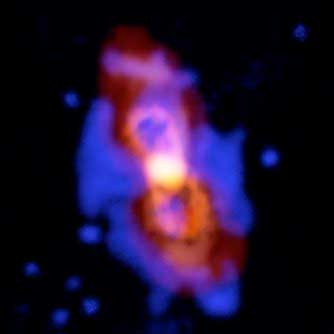 Astronomers have made the first definitive detection of a radioactive molecule in interstellar space: a form, or isotopologue of aluminum monofluoride.
Astronomers have made the first definitive detection of a radioactive molecule in interstellar space: a form, or isotopologue of aluminum monofluoride.
Jul 30th, 2018
Read more
 Scientists clarified how gravity affects the shape of matter near the black hole in binary system Cygnus X-1. Their findings may help scientists further understand the physics of strong gravity and the evolution of black holes and galaxies.
Scientists clarified how gravity affects the shape of matter near the black hole in binary system Cygnus X-1. Their findings may help scientists further understand the physics of strong gravity and the evolution of black holes and galaxies.
Jul 27th, 2018
Read more
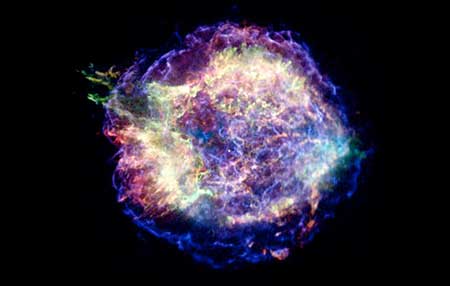 Study finds a new place to look for black-hole collisions and gravitational waves.
Study finds a new place to look for black-hole collisions and gravitational waves.
Jul 26th, 2018
Read more
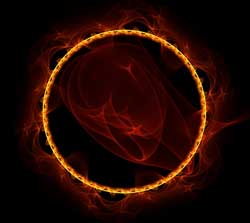 Calculations find a flaw in the firewall argument.
Calculations find a flaw in the firewall argument.
Jul 26th, 2018
Read more
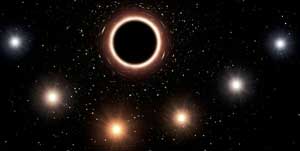 Observations made with ESO's Very Large Telescope have for the first time clearly revealed the effects of Einstein's general relativity on the motion of a star passing through the extreme gravitational field very close to the supermassive black hole in the centre of the Milky Way.
Observations made with ESO's Very Large Telescope have for the first time clearly revealed the effects of Einstein's general relativity on the motion of a star passing through the extreme gravitational field very close to the supermassive black hole in the centre of the Milky Way.
Jul 26th, 2018
Read more
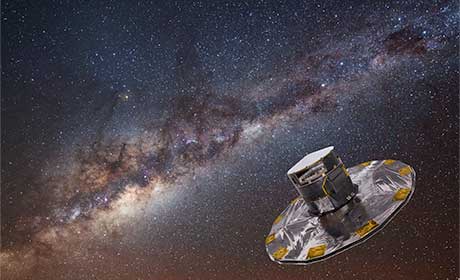 Astronomers predict star approaches with extreme precision for the first time.
Astronomers predict star approaches with extreme precision for the first time.
Jul 25th, 2018
Read more
 A team of astronomers has found a new way to unlock the mysteries of how the first galaxies formed and evolved.
A team of astronomers has found a new way to unlock the mysteries of how the first galaxies formed and evolved.
Jul 24th, 2018
Read more
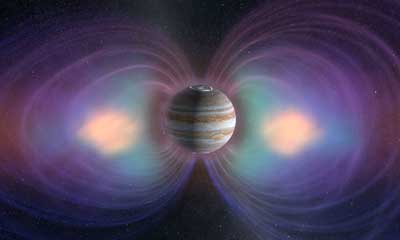 Liquid metallic hydrogen is not present naturally on Earth and has only been created in a handful of places. Scientists are researching the properties of liquid metallic hydrogen to understand how planets both inside and outside our solar system form magnetic shields.
Liquid metallic hydrogen is not present naturally on Earth and has only been created in a handful of places. Scientists are researching the properties of liquid metallic hydrogen to understand how planets both inside and outside our solar system form magnetic shields.
Jul 23rd, 2018
Read more
 Researchers show how Jupiter was formed. Data collected from meteorites had indicated that the growth of the giant planet had been delayed for two million years. Now the researchers have found an explanation: Collisions with kilometer-sized blocks generated high energy, which meant that in this phase hardly any accretion of gas could take place and the planet could only grow slowly.
Researchers show how Jupiter was formed. Data collected from meteorites had indicated that the growth of the giant planet had been delayed for two million years. Now the researchers have found an explanation: Collisions with kilometer-sized blocks generated high energy, which meant that in this phase hardly any accretion of gas could take place and the planet could only grow slowly.
 Subscribe to our Space Exploration News feed
Subscribe to our Space Exploration News feed















